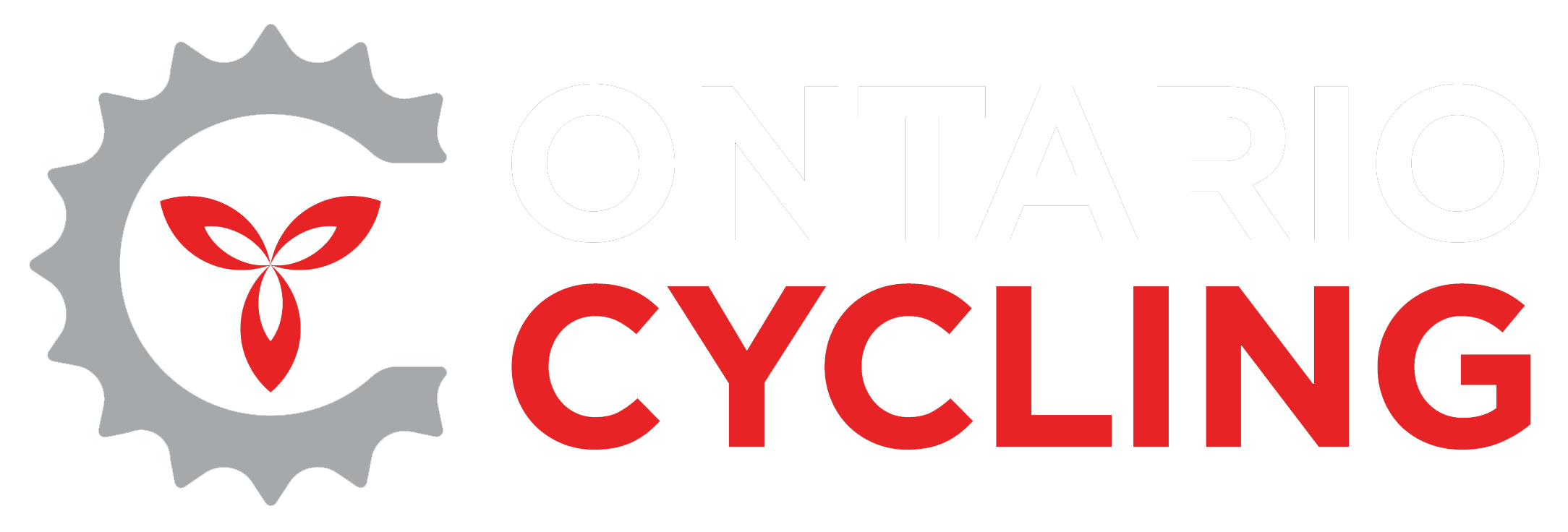IT IS THE UNKNOWN AROUND THE CORNER THAT TURNS MY WHEELS.
HEINZ STÜCKE
What is Para?
Introduced as a Paralympic sport in Seoul in 1988 for athletes with visual impairments, para-cycling now includes those with cerebral palsy, amputations and other physical impairments. Whether on the road or on the track, Cycling Canada closely collaborates with the Canadian Paralympic Committee to maximize the potential of all our para-cyclists competing here and abroad in four categories: bicycle, tricycle, handcycle and tandem.
Homegrown: Visually impaired athlete Robbi Weldon (Thunder Bay) won Gold at the 2012 London Paralympic Games and several Gold medals at the Parapan American Games while Shelly Gauthier (Niagara Falls) won silver at the 2016 Rio Paralympic Games and multiple consecutive World Championships. Marc Ledo (Maple) has competed at the 2008 Beijing Paralympic Games and won Gold at the 2015 Parapan American Games.
Competitors
Cycling events are open to all athletes with physical and visual disabilities. However, not all events are offered to all athletes. For example, Tandem and “C Class” (CP/Amputee and Traumatic Brain Injury) athletes compete in both track and road events while Tricycle and Handcycle athletes only compete at the Road events.
Classification
Competitors are classified based on their level of physical ability. There are multiple sub-categories within each classification ability. Athletes can be informally classified by a para-cycling coach. However, a formal classification by an approved UCI classification panel will be required for national and international level competitions. These panels are often available at national championships and identified international events. The following is a summary of para-cycling classifications.
- B1-B3: Blind and visually impaired athletes who use a Tandem
- C1-C5: Cycle, including some amputee and Cerebral Palsy and/or Traumatic Brain-Injured athletes, who use a regular bike
- T1-T2: Tricycle, including some Cerebral Palsy and/or Traumatic Brain-Injured athletes
- H1-H4: Handcycle, including some neurologically impaired, spinal-cored Injured, and Amputee athletes who use a handcycle rather than a regular bicycle
How do you get involved?
Ontario Cycling is committed to supporting para-cycling and is interested to hear from any potential athletes, coaches, or volunteers. This includes able-bodied cyclists interested in competing as pilots for visually impaired cyclists.
Ontario Cycling offers both introductory and competitive programs for para-cyclists.
Introductory Programs
- Tandem cycling program at the Mattamy National Cycling Centre (Milton Velodrome). This initiative is being delivered in partnership with the W. Ross MacDonald School for the Blind [bicycles and pilots are provided].
- Handcyclists looking for a riding groups [recreational or competitive] can contact the Handcycling Club of Canada to find out about opportunities in their area handcycling.ca
- Camps/workshops are also offered by the OC for new and developing athletes. Please contact the office for more information.
Competitive/ more experienced athletes
- Typically any para classification can integrate into an OCup or Provincial Time Trial event.
- Team Ontario hosts a number of training camps, including warm-weather camps in the winter, and prepares athletes for competition at national championships and other international events.
- Other opportunities for road racing will be identified and announced by OC.
- Defi Sportif is one of our highlight races for Para Athletes set to take place late April.
- Team Ontario continues with their new tiered HP Athlete Program offering different levels of support to athletes based on past performances, training commitments and future aspirations within the sport of cycling. For more information and how to apply please contact the office.
- Associate High-Performance Athlete: National Team athletes who will receive assistance and supplemental race and training support.
- Training Program Athlete: Athletes tracking towards Cycling Canada programs with goals of achieving international success. These athletes will be at or near Cycling Canada’s (link) Developmental time standards.
- Rising Stars Skills Camp Athlete: New or experienced athletes who are wanting to build upon skills, endurance and race preparation. These athletes are learning to train with goals in mind such as achieving National Developmental standards and will be allowed to participate in several of the local skills camps to help them continue to improve and build skills.
